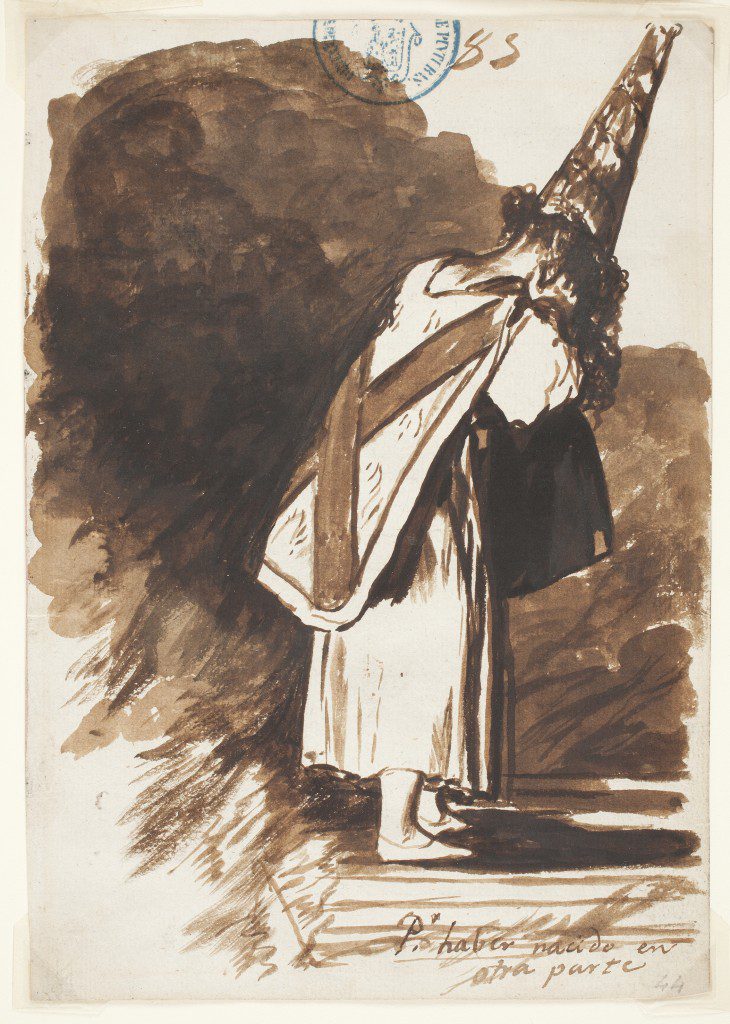This post concludes the series by giving three suggestions to apply the observations made in Part 1 & Part 2 concerning the use of honor-shame in social issues.
Jesus said those of this world are more shrewd than people of the light (cf. Luke 16:8). The church’s response to the LBGT movement might be a modern case-in-point. Here are three initial suggestions for the church to move forward with greater shrewdness.
Morality is Bigger than Law
First, the church should recognize legal-guilt language is not always sufficient to engage moral issues of the heart and in society.

In fact, the LGBT itself has seized the opportunity to intertwine the sphere of law and shame. As we’ve seen, people have used honor-shame language to describe what they regard as inalienable human rights. A key point is this: LGBT has adopted the precise language Christians have supposed is a biblical and objective manner of talking about right and wrong.
The LGBT’s intertwining of legal and shame rhetoric demonstrates that legal metaphors (revered in Western theology) are not inherently sacred. In a democratic society based on the rule of law, the populous make something “right” or “wrong” simply by changing laws. If the church only talks about morality using law language, those who live in democracies will continue to mishear or ignore such metaphors.
Confucius prioritizes shame above law as a tool of shaping morality. He writes,
If the people are led by laws, and uniformity among them be sought by punishments, they will try to escape punishment and have no sense of shame. If they are led by virtue, and uniformity sought among them through practice of ritual propriety, they will possess a sense of shame and come to you of their own accord. (Analects 2:3)
It’s time to regain a broader understanding of shame in relationship to morality and theology. As we do, the church’s ministry can be more biblically faithful and culturally meaningful both in America and around the world.
Regaining a Sense of Shame in the Church
Second, Christians must radically rethink common views of the church.

In actual practice, Western churches conform to the broader culture inasmuch as people treat the church as a voluntary social club rather than an essential aspect of Christian identity and maturity. Even a godly sense of shame requires a strong sense of collective identity. As long as Christians’ fundamental loyalty is not to one another, they remain highly prone to the shame tactics of the wider culture.
In the New Testament, discussions about Christian character presume the church’s strong sense of collective identity. Corinth in some ways is an ancient precursor to contemporary Western culture. In 1 Corinthians 5:1–2, Paul laments,
“It is actually reported that there is sexual immorality among you, and of a kind that is not tolerated even among pagans, for a man has his father’s wife. And you are arrogant! Ought you not rather to mourn? Let him who has done this be removed from among you.” (ESV)
Paul’s response is convicting and insightful. In verses 9–13, Paul adds,
I wrote to you in my letter not to associate with sexually immoral people—not at all meaning the sexually immoral of this world, or the greedy and swindlers, or idolaters, since then you would need to go out of the world. But now I am writing to you not to associate with anyone who bears the name of brother if he is guilty of sexual immorality or greed, or is an idolater, reviler, drunkard, or swindler—not even to eat with such a one. For what have I to do with judging outsiders? Is it not those inside the church whom you are to judge? God judges those outside. “Purge the evil person from among you.”
Paul forges a sharp distinction between insiders and outsiders. Accordingly, Paul directly appeals the Corinthians’ shame when they insist on their individual rights rather than allow themselves to be wronged. He says,
“When one of you has a grievance against another, does he dare go to law before the unrighteous instead of the saints?… So if you have such cases, why do you lay them before those who have no standing in the church? I say this to your shame” (1 Corinthians 6:1, 4–5).
Christian community requires that individuals humble themselves for the sake of the church’s witness in the world.
It’s difficult to persuade others on moral issues when our own house is a wreck. For the church to have a godly sense of shame, we must regain a counter-cultural practice––church discipline. Consider Paul’s word of love in 1 Thessalonians 3:14–15,
“If anyone does not obey what we say in this letter, take note of that person, and have nothing to do with him, that he may be ashamed. Do not regard him as an enemy, but warn him as a brother.”
For many, the reflex reaction against this practice likely reflects the fact that they have subtly adopted the perspective of the wider individualistic, “fame-shame” culture. Yet, what are those outside the church to think when Christians want to legislate the behaviors of outsiders when believers are unwilling to enact church discipline on the chronic fornication, divorce and adultery in its midst?
Social mores have loosened at the same time the church has relaxed its expectations of church members. This is probably not coincidental. Many churches use various attractional techniques to woo the world’s tolerance.
However, the increasing fixation on attracting seekers comes at a high cost and might subtly succumb to the fatal trappings of a “fame-shame” culture. Unknowingly, such churches make “belonging” the principle conviction that guides ministry practice. The greatest sin is anything that draws a line that might make someone feel like an outsider to God’s people.

As the American church faces its marginalized status, one realizes that something else might fuel zeal to build large, seeker-friendly churches. Perhaps, rapid growth and popularity has the attractive side effect of appeasing the churches’ own sense of shame by making them feel like they belong in the broader culture.
Shamed for Christ’s Name
Third, Christians should explore constructive uses of shame.
After all, various biblical writers equipped the early church, a social minority, to use shame when engaging outsiders. Rather than assume a position of power, early believers intentionally used weakness to undermine the honor-shame dynamics of the culture.
Peter urges readers to respond to outsiders
“with gentleness and respect, having a good conscience, so that, when you are slandered, those who revile your good behavior in Christ may be put to shame” (1 Pet 3:15–17).
Paul makes similar comments to social groups who lacked social influence. Despite the lack of political rights, their behavior should give opponents no occasion to “revile” or “slander” God’s word (Titus 2:3–8; 1 Tim 5:14; 6:1).
Hopefully, these observations will stimulate conversation concerning the contemporary Western context. As a prerequisite, a biblically faithful response to culture requires Christians to stop using worldly methods of shaming. Some behaviors are subtle. For example, we should ask, “How do we talk about LGBT? With generosity and grace or fear and anger?” Even how we talk about social groups can perpetuate destructive uses of shame.
“If anyone suffers as a Christian, let him not be ashamed, but let him glorify God in that name” (1 Peter 4:16).
This alternative lifestyle is the fruit of consistent Christian character. The church’s perseverance transcends cultural trends and appeals to more fundamental human values like love, justice, and unity. Rather than insist on individual rights, Paul welcomed suffering as a means of seeking honor before God. Living in the margins of culture provides a unique opportunity to exalt Christ’s name, not personal fame.













